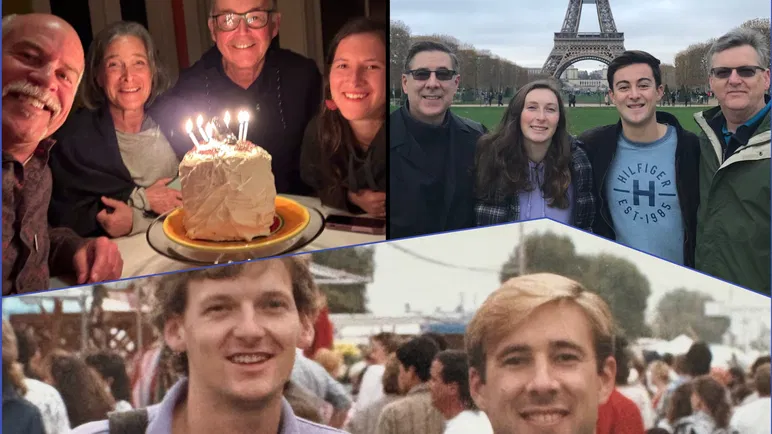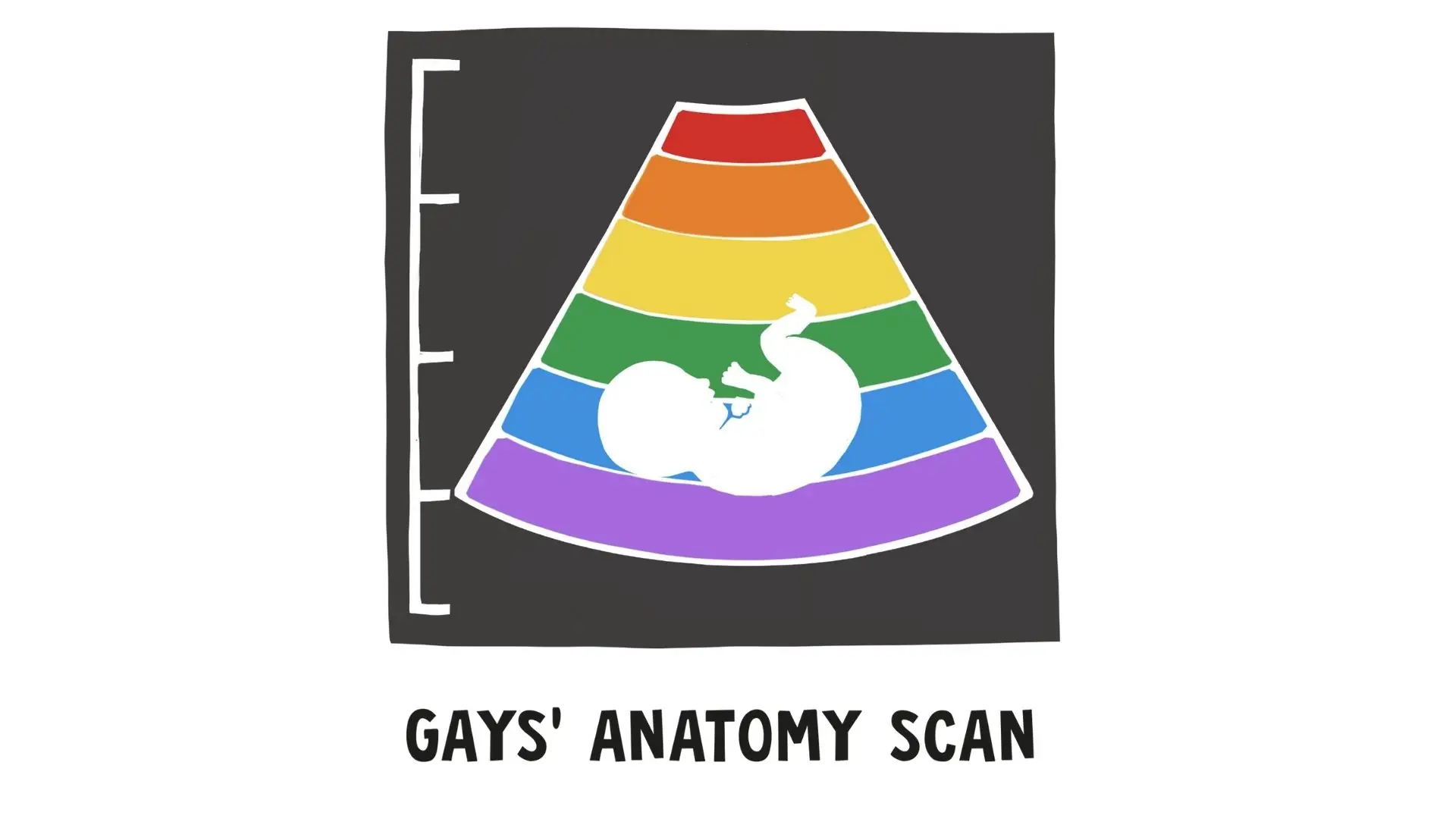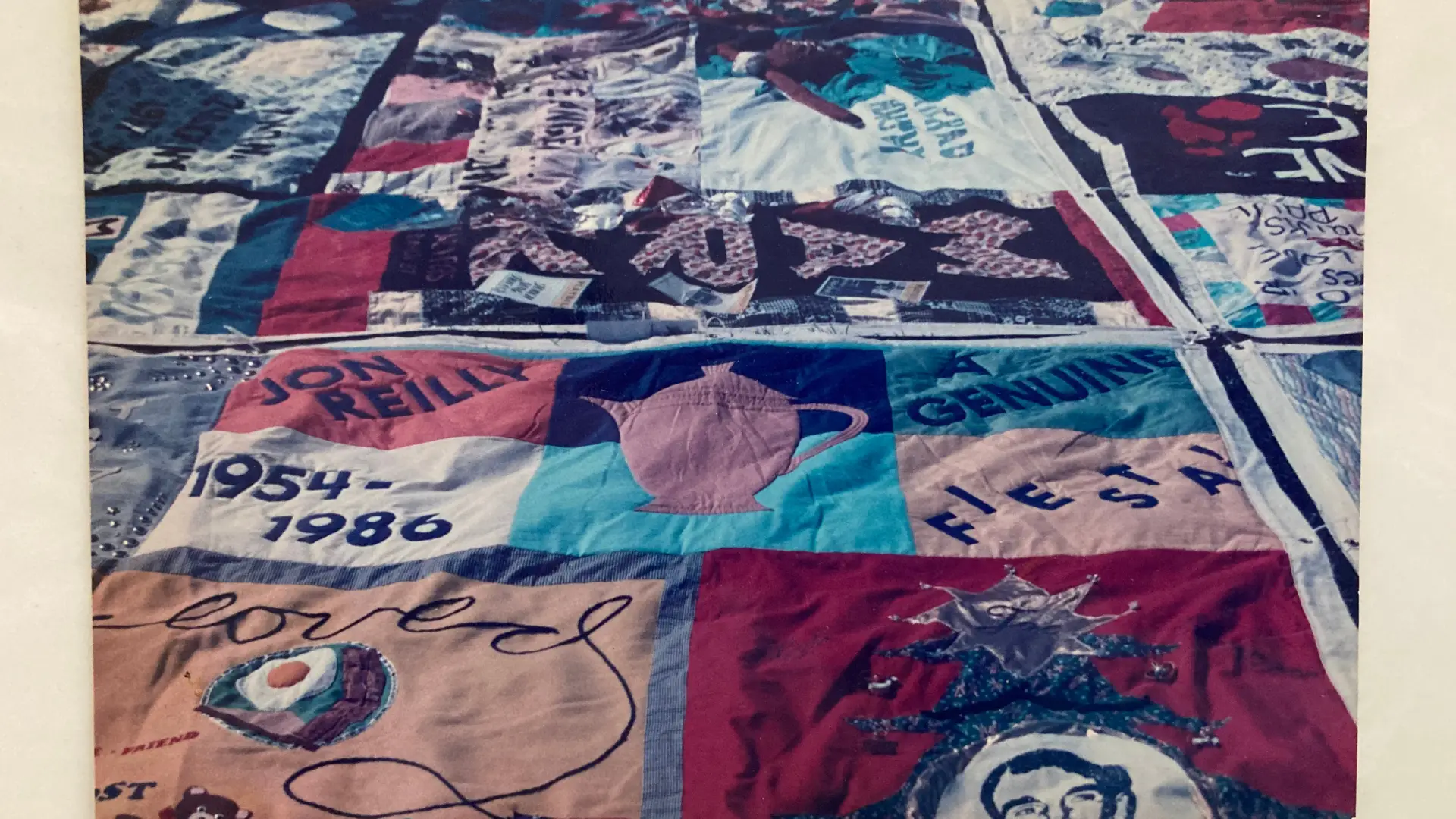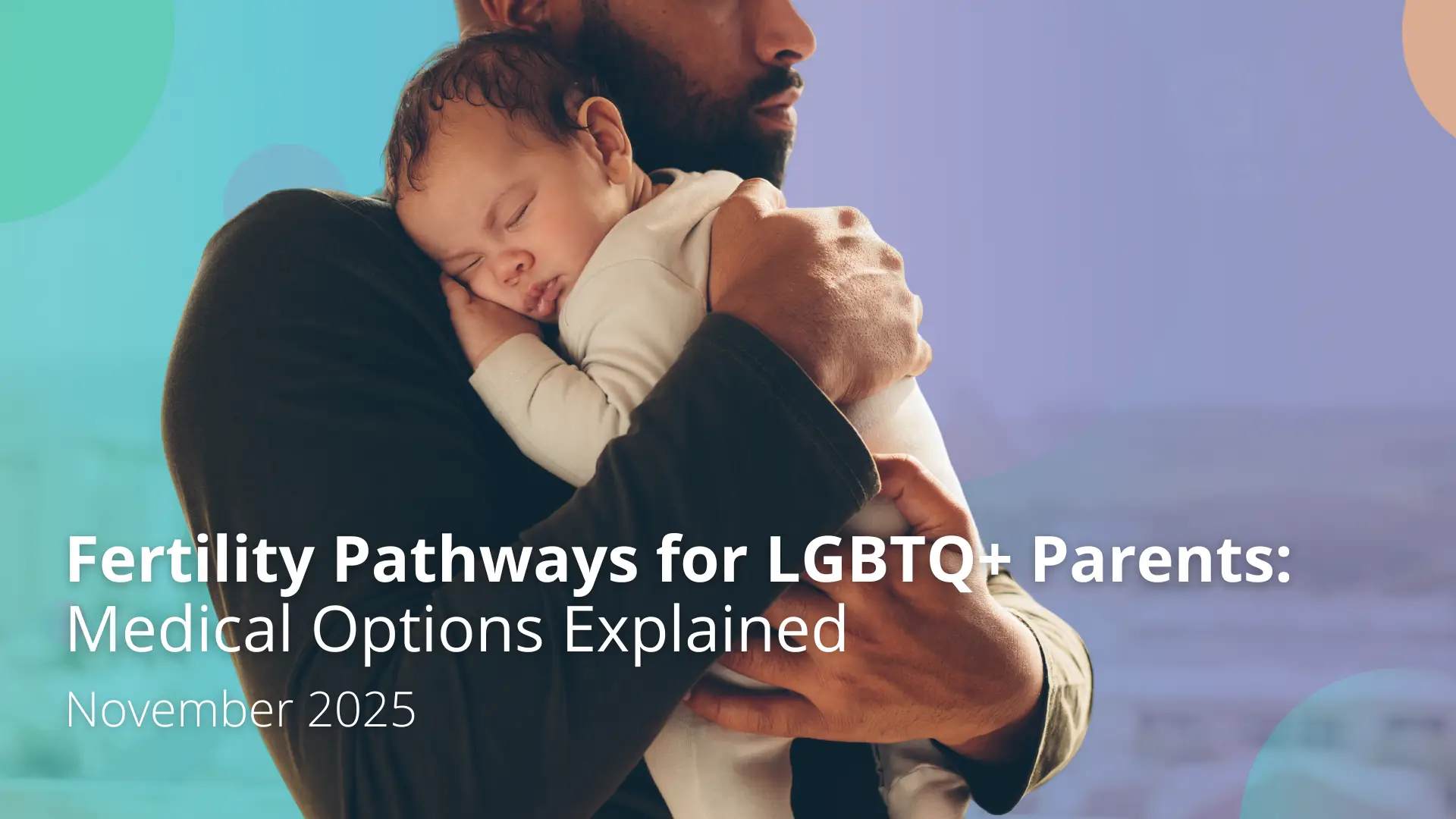Amid the AIDS crisis and anti-LGBTQ backlash, two couples dared to imagine family when few thought it possible. Decades later, their enduring love stories still light the way forward.
In the early 1990s, when the AIDS crisis was still raging and the very concept of marriage equality seemed like fantasy, two gay couples — Rick and Robb, and Dan and David — quietly began doing something radical: building families.
At a time when queer love itself was seen as defiant, they imagined something even more audacious — that they could raise children, live openly, and thrive as parents.
Their journeys, distinct but deeply intertwined, reveal how courage and community carried many LGBTQ+ people through the darkest years of the last century — and how those same values continue to matter now, as our country once again grapples with a growing backlash against gay and trans people.
Rick & Robb: Building Family, One Brave Conversation at a Time
Rick and Robb met in Boston in 1990 — at a safer-sex workshop during the height of the AIDS crisis co-hosted by Robb, who worked in health education at what used to be called the Fenway Community Health Center (and is now simply called “Fenway Health”).
What began as a moment of community education became something more — a spark of connection in a world shadowed by fear and loss. They started seeing each other soon after, cautiously at first, and then with the quiet certainty that they’d found something worth holding onto.
Reflecting on that period, Rick said, “The AIDS crisis changed everything for me — how I lived, what I valued, even the work I wanted to do. It made me realize that if we were going to lose people we loved, then love itself had to matter more. It made me fall in love with Robb, and eventually, it made me want to be a dad.”
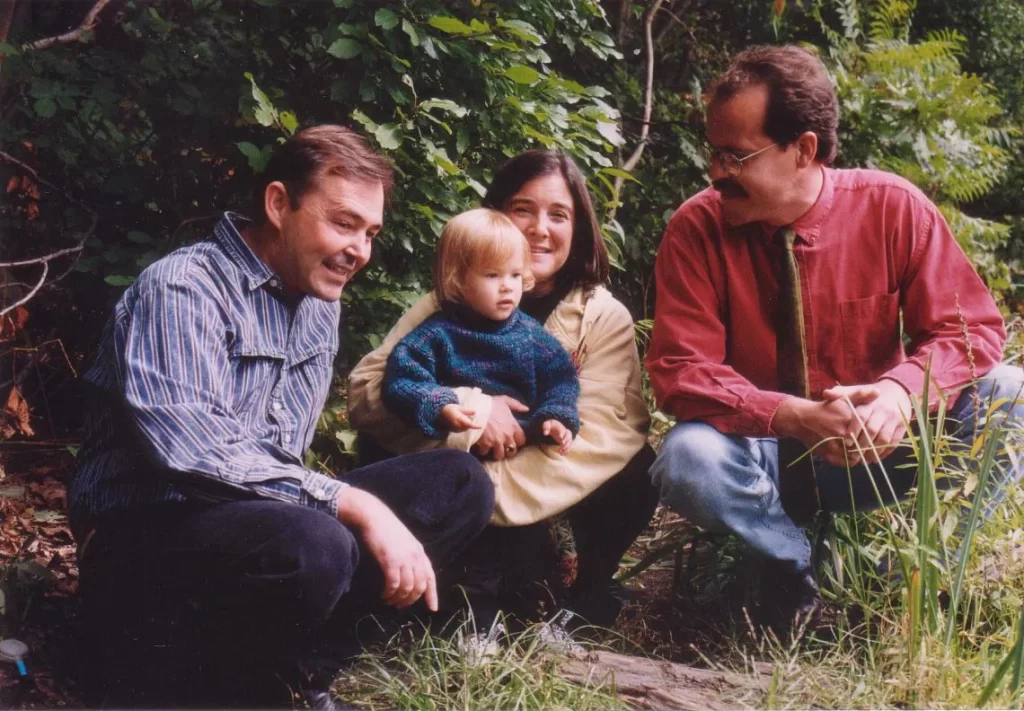
By the early 1990s, the two had built a stable, joyful life surrounded by friends and allies who modeled what chosen family could look like. Though Rick had not seriously considered parenting as a gay man, they began discussing that possibility in earnest when Jenifer, a lesbian and one of Robb’s colleagues from the Fenway, approached him about co-parenting a child.
The guys hadn’t imagined this particular path to creating a family — but they were open-hearted enough to say yes to embarking on the journey to create a three-parent family — not just as an act of love, but as an act of quiet revolution.
Their daughter, Hannah, became the heart of that shared experiment in love and family. She grew up in two homes full of laughter, music, and unwavering acceptance — her life proof that queer people didn’t have to choose between authenticity and parenthood.
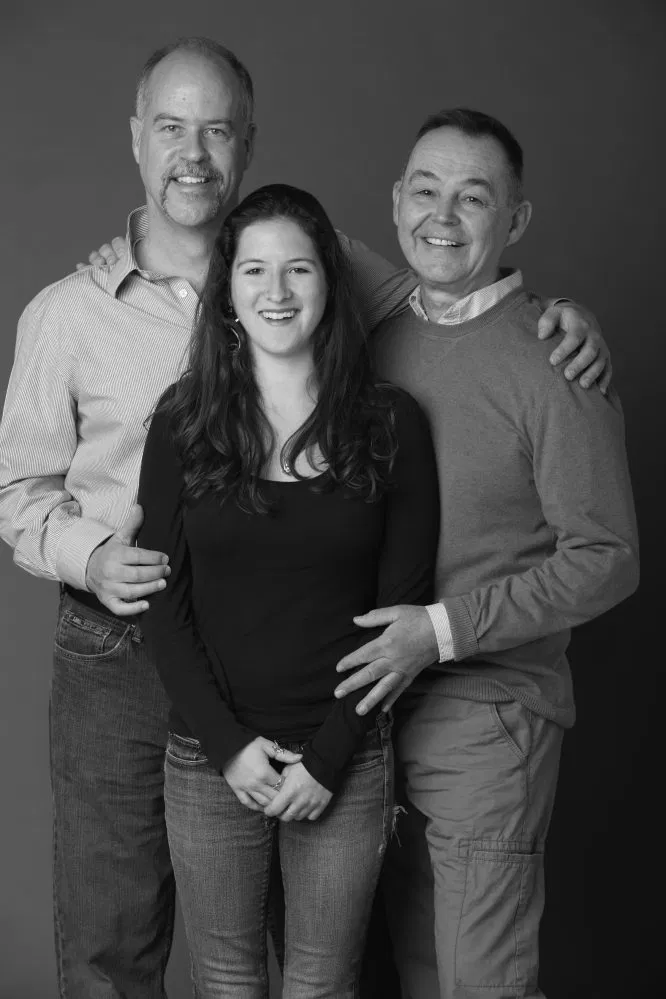
And she changed more than just their lives. Robb’s father, who had once struggled to accept his son’s sexuality, warmed after Hannah was born. Seeing his granddaughter — and the love and stability surrounding her — helped him understand what acceptance really looked like. Family has a way of softening people.
“We didn’t have many role models,” Robb said. “We just had to trust our instincts and our love for her — and for each other.”
Dan & David: Love and Commitment Across Three Marriages
Across the country, Dan Neumann and David Richardson were charting their own parallel course. They met in 1987 at a gay bar in San Mateo, California, when the specter of AIDS loomed over every new connection.
“We were cautious,” Dan said. “You had to be — but you also had to believe love was still possible.”
Their relationship began with quiet steadiness rather than fireworks. Over the next few years, that steadiness grew into something powerful enough to last nearly four decades.
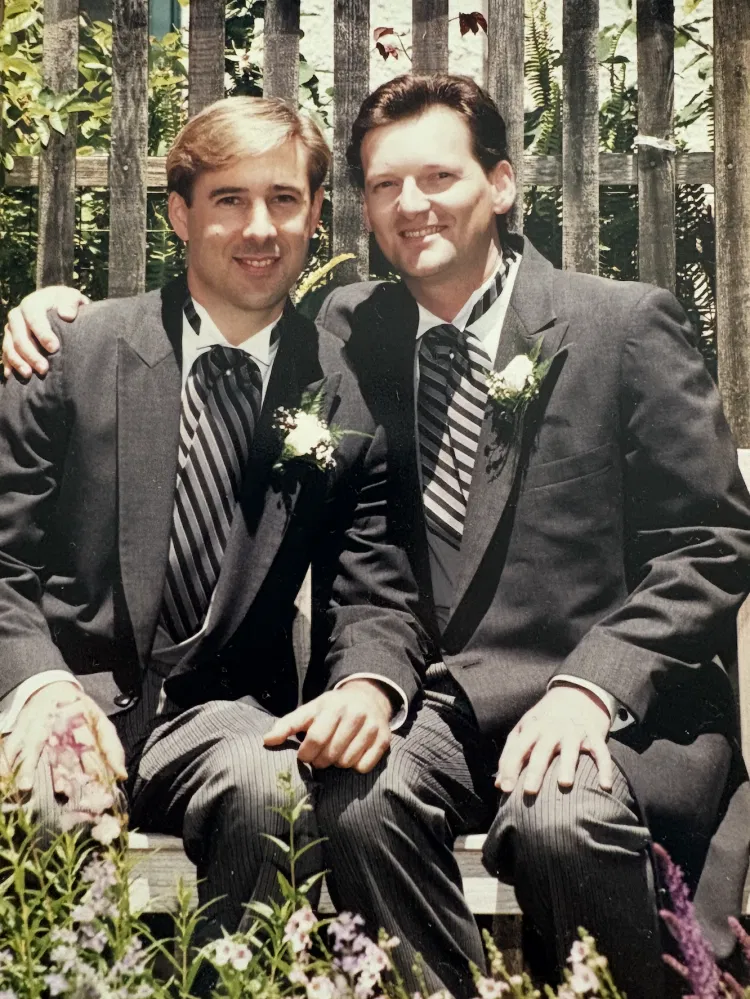
By 1996, when President Bill Clinton signed the Defense of Marriage Act (DOMA) into law — explicitly defining marriage as between one man and one woman — Dan and David decided to do something that defied the moment: they got married.
Their ceremony was officiated by Mel White, an openly gay Christian activist and minister who had once ghostwritten for some of America’s most famous evangelical leaders before coming out and founding Soulforce, a nonviolent movement for LGBTQ+ equality. (He’s also the father of White Lotus creator Mike White.) Friends and family attended — a bold show of support during an era when same-sex commitment ceremonies were still rare and often ridiculed.
They would go on to marry two more times — in 2004 during Gavin Newsom’s landmark San Francisco marriages, and again in 2008 when marriage equality was briefly legalized in California. Each wedding marked another milestone in the ongoing fight for legitimacy, not just for them but for all LGBTQ+ families.
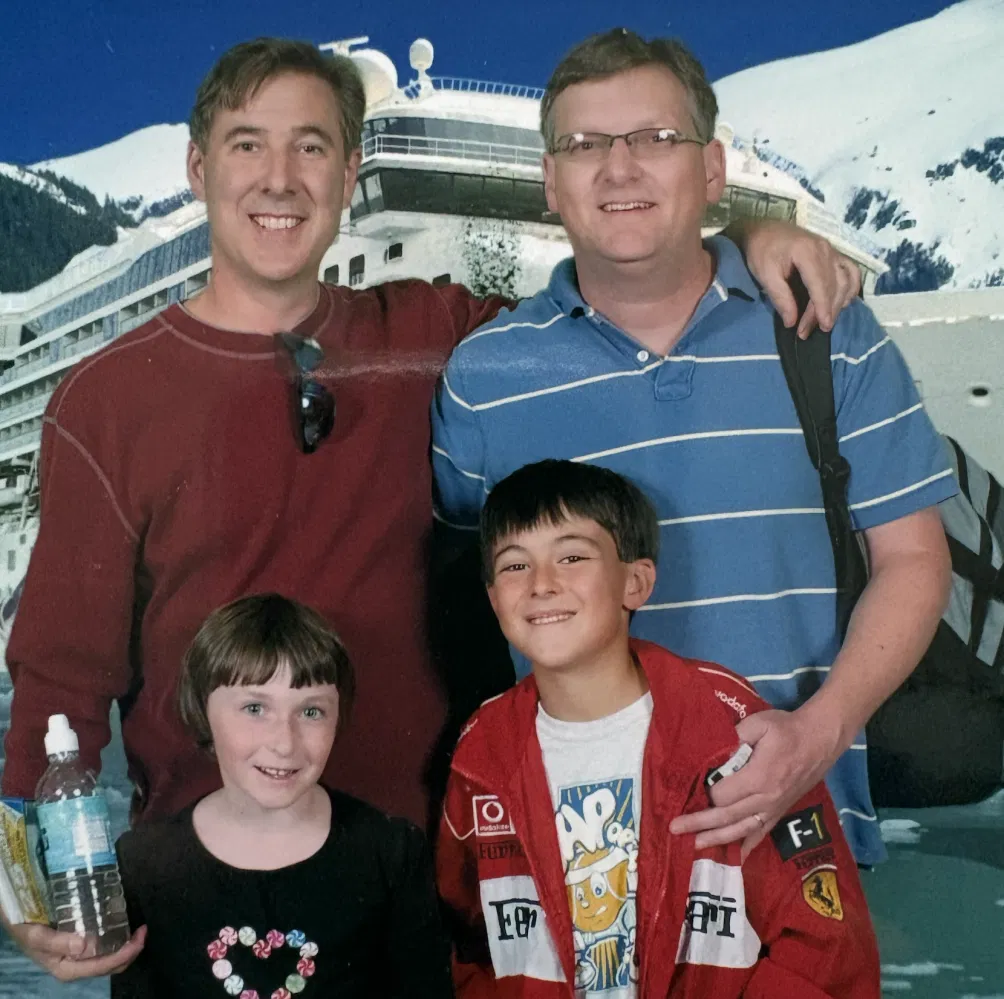
Throughout their journey, Dan and David remained steadfast in their desire to become parents. They ultimately built their family through two surrogacy journeys, each with a different woman — at a time when very few clinics or agencies were open to working with gay men.
“It wasn’t easy,” David said. “There were no roadmaps back then — just a lot of research, persistence, and hope. But we knew we wanted to be dads, and we weren’t going to let anyone tell us we couldn’t.”
Parenting Through Prejudice and Possibility
What united both couples — beyond the era they came of age in — was their belief that love was worth building on, even in a world that refused to see their families as valid.
Parenting as openly gay men in the 1990s meant enduring daily microaggressions, legal uncertainty, and the fear of losing their children should something go wrong. Hospitals, schools, and even extended families often didn’t know how to process two fathers — or a three-parent arrangement.
And yet, Rick, Robb, Dan, and David pressed forward, supported by other queer families doing the same thing quietly, courageously, and often without precedent. They relied on their communities for guidance and solidarity — long before social media, before legal protections, before Modern Family made America comfortable laughing along with two dads.
Their children grew up surrounded by love, humor, and resilience. They became living testaments to what happens when LGBTQ+ people are allowed to define family on their own terms.
Legacy and Lessons for a New Generation
Now, decades later, both couples remain together — still deeply in love, still supporting one another and their communities. Their children are grown, each forging their own path in the world.
Looking back, all four men express both pride and astonishment at how far things have come — and worry about what’s being lost in today’s cultural climate.
“It’s strange,” said Dan. “We fought so hard for progress, and now we’re watching people try to roll it back. It reminds us why we can’t ever stop showing up.”
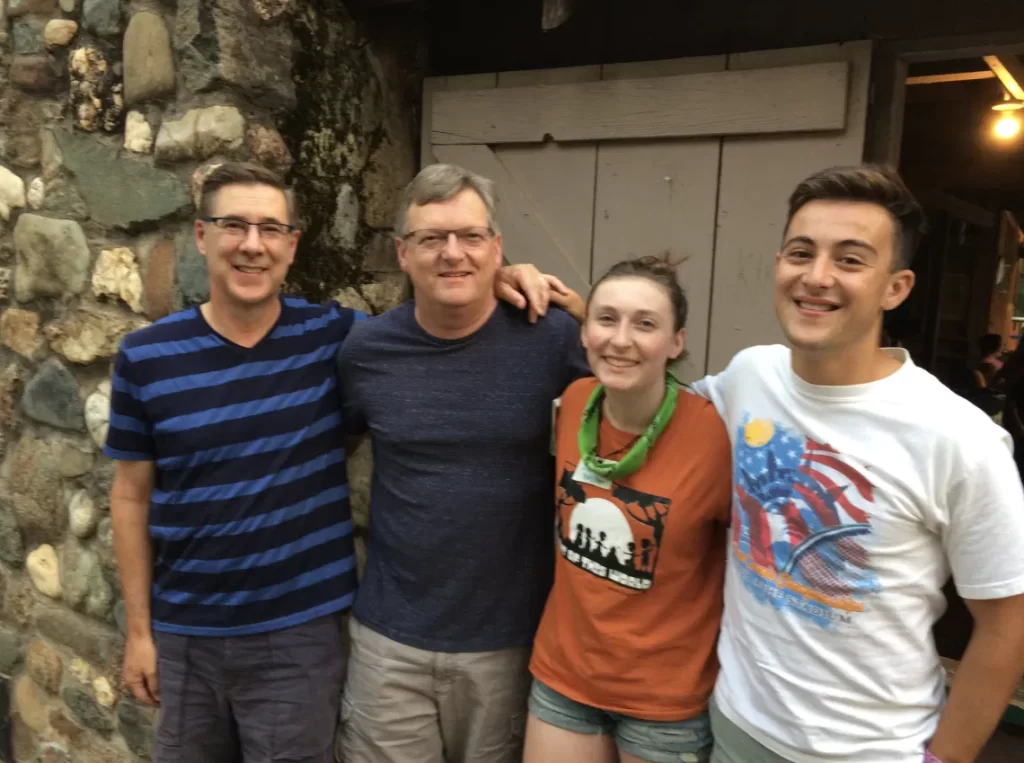
From new laws targeting LGBTQ+ rights to the dismantling of DEI programs and the rise of political hostility, the present moment can feel uncomfortably familiar for those of us who lived through the 1990s. And yet, these couples’ stories also remind us that visibility, love, and persistence change everything — even when the odds seem impossible.
Rick and Robb sometimes hear from younger gay dads who thank them for paving the way. “We didn’t set out to be trailblazers,” Rick said with a laugh. “We just wanted a family. But if our story makes it a little easier for someone else — that’s the best reward there is.”
A Different Kind of Pride
What’s most striking about both couples’ journeys isn’t just the love they’ve shared or the barriers they’ve broken — it’s the ordinariness of their dreams. They wanted what so many others want: connection, stability, children, and community.
That ordinariness was revolutionary. And it’s what makes their stories endure.
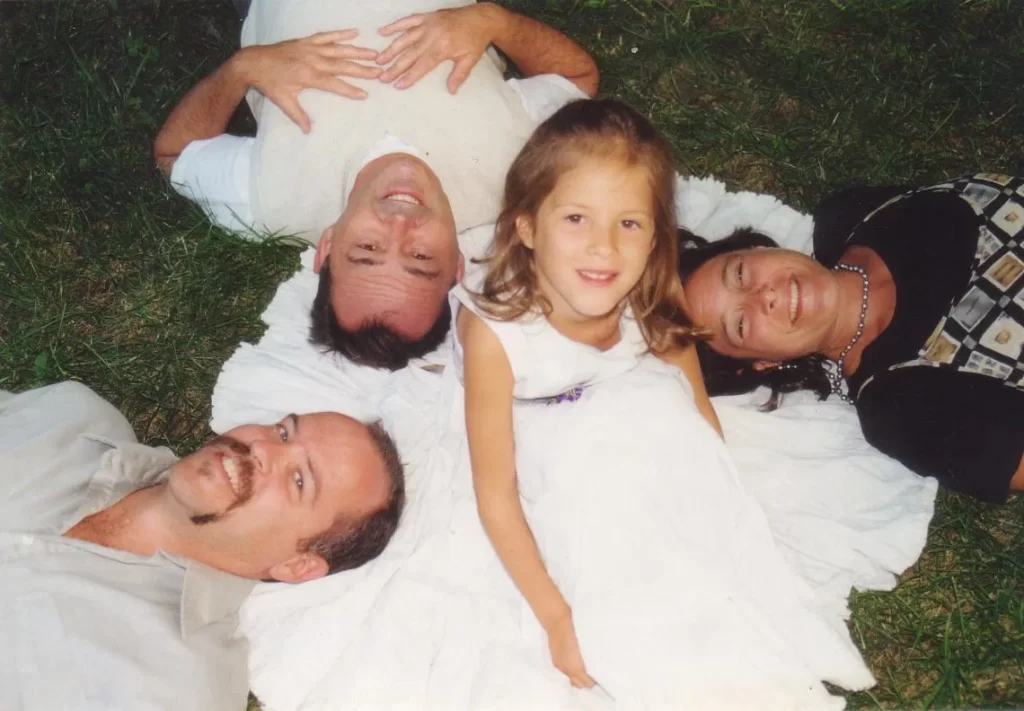
Their paths remind us that queer family-building — whether through adoption, surrogacy, co-parenting, or donor conception — has always been an act of hope. Every parent who chooses to bring a child into the world, or to love one already here, participates in a quiet, ongoing rebellion against shame and invisibility.
Today, their lives are peaceful and full — rich with long-term partnership, grown children, and the satisfaction of knowing they helped expand the very definition of what family means in America.
Still Showing Up
The stories of Rick & Robb and Dan & David aren’t just nostalgic snapshots of a different time — they’re blueprints for endurance.
They show that progress happens when people choose to live openly, love defiantly, and raise the next generation without apology. They remind us that every family built out of love — queer or otherwise — is a victory.
And they call us, especially now, to keep building, keep fighting, and keep showing up — because that’s what love, and legacy, demand.
[This article] was originally published on LGBTQ Nation.

